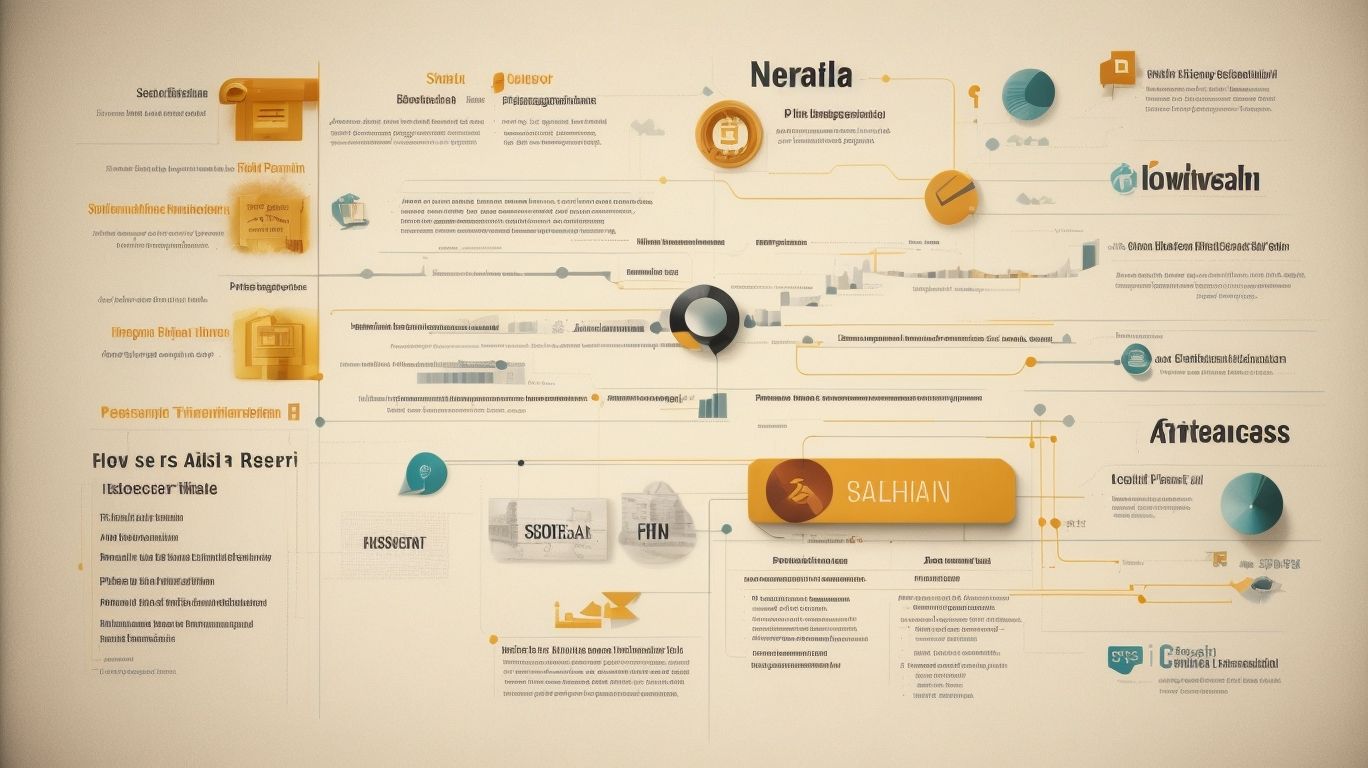In the fast-paced digital landscape, having a solid SEO plan is crucial for businesses aiming to boost their visibility and attract organic traffic. An effective SEO plan encompasses a strategic approach to optimising a website’s content and structure to align with search engine algorithms, thereby improving its ranking in search results. This comprehensive guide will walk you through the key components of an SEO plan, including the significance of keyword research, on-page and off-page optimization, content strategy, and technical SEO. We’ll delve into the essential steps for creating a tailored SEO plan, from defining your goals and conducting thorough keyword research to monitoring and adjusting your strategy. With the aid of powerful tools such as Google Keyword Planner, SEMrush, Ahrefs, Google Analytics, and Google Search Console, you’ll gain valuable insights and data to propel your SEO plan towards success. Whether you’re a seasoned SEO professional or a business owner seeking to enhance your online presence, this article will equip you with the knowledge and resources to craft an impactful SEO plan.
What is an SEO Plan?

Credits: Ultrajeb.Com – Brandon Thomas
An SEO plan is a comprehensive strategy that outlines the necessary steps and techniques to improve a website’s visibility and rankings on search engines, ultimately driving organic traffic and enhancing online presence.
It is a proactive approach to optimising a website for search engines, considering factors such as keyword research, content optimisation, technical enhancements, and link building. By integrating relevant keywords and entities, an SEO plan ensures that a website aligns with the search queries of the target audience, increasing the likelihood of being discovered by potential customers.
It plays a pivotal role in enhancing online visibility, reaching a wider audience, and improving search engine rankings, leading to increased brand exposure and credibility. Effective implementation of an SEO plan can result in sustainable organic traffic growth and better user engagement, ultimately contributing to the overall success of a website or business.
An SEO plan is important because it helps improve the visibility and ranking of a website on search engines, leading to increased organic traffic and potential customers.
An SEO plan is crucial for businesses and websites as it serves as a roadmap to increase organic traffic, climb up the SERPs, and establish a strong online presence amidst fierce competition in the digital landscape.
By integrating carefully chosen keywords and entities, an SEO plan ensures that the website’s content aligns with what users are searching for, thereby enhancing its visibility in search results. This leads to higher click-through rates and increased chances of converting visitors into customers.
A well-crafted SEO strategy also involves comprehensive website optimisation, enhancing user experience, and building high-quality backlinks, which collectively contribute to achieving and maintaining top search engine rankings.
What are the Key Components of an SEO Plan?

Credits: Ultrajeb.Com – Charles King
The key components of an SEO plan encompass meticulous keyword research, strategic on-page and off-page optimisation, a well-defined content strategy, and attention to technical SEO aspects, all aimed at enhancing a website’s visibility and relevance to search engines and users.
Keyword research forms the foundation of an effective SEO strategy, identifying the most relevant terms and phrases that potential visitors are searching for. Once identified, these keywords are strategically incorporated into website content and meta tags to optimise for search engine algorithms.
Off-page optimisation involves building high-quality backlinks, while on-page optimisation focuses on creating valuable content and improving user experience. A solid content strategy ensures the creation of engaging, informative, and user-focused material.
Technical SEO addresses website structure, speed, and mobile-friendliness to ensure optimal crawlability and indexability.
Keyword Research and Analysis
Keyword research and analysis form the foundation of an effective SEO strategy, providing insights into user search intent, long-tail keywords, and the competitive landscape, all essential for optimising a website’s content and structure.
Understanding user search intent is crucial to delivering relevant content that meets the needs and expectations of potential visitors. By identifying the specific phrases and questions users are using to search for information, website owners can adapt their content to address these queries.
Long-tail keywords, often overlooked, can bring in high-quality traffic as they tend to be more specific and have less competition. This emphasises the significance of diving into granular keyword analysis, ensuring visibility for niche topics.
Conducting a comprehensive SEO audit, integrating relevant keywords and entities, provides contextual depth and relevance, giving websites a competitive edge by offering valuable and authoritative content.
On-Page Optimization
On-page optimisation focuses on refining web page elements such as meta tags, content, and internal linking to enhance their relevance, visibility, and alignment with user search queries, thereby improving search engine rankings and user experience.
Meta tags, including the title tag and meta description, play a crucial role in conveying the content and purpose of a web page to search engines and users. By optimising these meta tags with relevant keywords and compelling descriptions, web pages can significantly boost their visibility and click-through rates.
Crafting high-quality and keyword-rich content is essential for on-page optimisation, as it directly influences the page’s relevance to search queries and user intent.
Internal linking structures within a website can help distribute link equity and guide users to relevant content. Strategic placement of internal links with relevant anchor text can enhance the user experience by providing seamless navigation and improving the discoverability of valuable information. When these elements are harmoniously optimised, they contribute to a more favourable ranking position and a satisfying browsing experience for visitors.
Off-Page Optimization
Off-page optimisation involves managing a website’s backlink profile, fostering quality link building, and establishing authority and credibility across the web, ultimately contributing to improved search engine rankings and online visibility.
Quality link building plays a crucial role in off-page optimisation, as it involves acquiring links from high-authority and relevant websites. This process not only enhances a website’s visibility but also showcases its credibility to search engines. It often includes outreach, content marketing and networking to attain backlinks that boost the site’s authority.
Managing the backlink profile is vital to ensure a healthy link profile. This involves monitoring the quality and relevance of incoming links, removing toxic or spammy links and disavowing links that could harm the site’s reputation. A well-managed backlink profile reflects positively on a website’s search engine rankings and overall online reputation.
Content Strategy
A robust content strategy encompasses the development of a content calendar, publishing schedule, and creation of valuable, engaging content that aligns with user intent, driving organic traffic and fostering user engagement.
By organising content publication according to a well-structured calendar, businesses can ensure consistent delivery of relevant and valuable information, maintaining audience interest and building trust over time. A clear publishing schedule not only facilitates timely content deployment but also supports effective workflow management, enabling teams to collaborate seamlessly.
Aligning content creation with user intent involves understanding audience needs, preferences, and behaviours, ultimately leading to the generation of content that resonates and adds significant value.
Technical SEO
Technical SEO involves optimising a website’s infrastructure, including aspects such as mobile-first indexing, structured data markup, and website performance, to enhance user experience, search engine visibility, and overall website health.
Emphasising the significance of mobile-first indexing, technical SEO ensures that a website is efficiently crawled and indexed by search engines on mobile devices, prioritising the mobile version over desktop. This directly impacts the site’s visibility in mobile search results, aligning with the increasing number of mobile users.
Furthermore, structured data markup plays a pivotal role in technical SEO, providing search engines with additional context and rich snippets, enhancing the presentation of the website in search results and improving click-through rates.
Regarding website performance, technical SEO focuses on optimising loading speed, reducing server response times, and eliminating crawl errors, contributing to a smoother user experience and higher search engine rankings. Ensuring these components are well-integrated boosts overall website health and facilitates better online visibility.
How to Create an SEO Plan?
Creating an effective SEO plan involves:
- Defining clear goals and objectives
- Conducting comprehensive keyword research
- Analysing competitors
- Developing a robust content strategy
- Implementing on-page and off-page optimisation
- Establishing monitoring mechanisms to track and adjust the plan’s effectiveness
Defining clear goals is the first crucial step in creating an SEO plan. It is important to identify what you want to achieve, whether it’s increasing website traffic, improving search engine rankings, or boosting conversions. Once the goals are set, conducting comprehensive keyword research comes into play. This involves identifying relevant keywords and phrases that are frequently searched by your target audience.
Next, analysing competitors helps in understanding their strategies and identifying gaps and opportunities. Developing a robust content strategy is essential, ensuring that the content is valuable, engaging, and optimised for SEO. Implementing on-page and off-page optimisation techniques, such as meta tags, link building, and mobile optimisation, is vital for increasing visibility and relevance. Establishing monitoring mechanisms to track the plan’s effectiveness allows for adjustments and optimisation over time.
Define Your Goals and Objectives
Defining clear goals and objectives for an SEO plan involves aligning the strategies with the customer funnel, setting specific targets for organic traffic, search engine rankings, and user engagement, thus laying the groundwork for a focused and effective plan.
Aligning the SEO strategies with the customer funnel ensures that every stage of the customer journey is acknowledged and addressed, from awareness to conversion.
Setting specific targets for organic traffic involves analysing trends, identifying high-value keywords, and optimising content for search engine rankings.
Focusing on user engagement entails creating valuable, user-centric content and optimising user experience to enhance interaction and conversions.
Carry out Keyword Research
Conducting comprehensive keyword research involves identifying long-tail keywords, considering the impact of voice search, and aligning the chosen keywords with the website’s content and user search intent, thus laying the foundation for effective SEO optimisation.
Long-tail keywords play a crucial role in capturing specific search queries, often reflecting user intent more precisely. Focusing on longer, more targeted phrases allows businesses to attract visitors who are closer to making a purchase decision, thus enhancing conversion opportunities.
The rise of voice search has further revolutionised keyword research, as queries made in natural language differ from traditional typed searches. Seamlessly integrating phrases that mirror conversational language is imperative to align with voice search trends and capture relevant traffic.
Understanding user intent when selecting keywords is essential. Analysing what searchers aim to achieve and tailoring the keywords to match their objectives not only boosts SEO but also enhances the overall user experience, fostering greater engagement and conversion rates.
Analyse Competitors
Analysing competitors involves benchmarking their strategies, identifying their strengths and weaknesses, and leveraging the insights gained to refine and enhance the SEO plan, ensuring a competitive edge in the digital landscape.
Through benchmarking, businesses can compare their performance against industry leaders and understand market trends. Identifying competitive strengths helps in recognising areas for improvement, while pinpointing weaknesses presents opportunities for differentiation. Leveraging these insights, SEO strategies can be finely tuned to capitalise on untapped market segments, improve user experience, and bolster brand authority. This refined approach to competitor analysis enables businesses to adapt swiftly to market changes and gain a better understanding of their target audience’s preferences, ultimately enabling more impactful and well-considered choices.
Develop a Content Strategy
Developing a content strategy involves creating a content calendar, establishing a publishing schedule, and aligning content creation with user intent and SEO objectives, thereby ensuring a consistent and valuable online presence.
A content calendar serves as the guiding roadmap for the ideation, creation, and publication of content. It allows for the systematic planning of topics, formats, and distribution channels, ensuring a diverse and engaging content mix. By adhering to a publishing schedule, the content strategy can maintain regularity and relevance, catering to the audience’s expectations.
Aligning content with user intent and SEO goals involves strategic keyword integration, entity optimisation, and semantic relevance, which collectively contribute to improved search visibility and user engagement.
Carry out On-Page and Off-Page Optimization
Implementing on-page and off-page optimisation strategies involves refining website elements, managing backlink profiles, and ensuring alignment with the SEO plan’s objectives, ultimately enhancing search engine visibility and user relevance.
Refining website elements includes optimising title tags, meta descriptions, heading tags, and internal linking structures to enhance keyword relevance and user experience.
Managing backlink profiles entails identifying high-quality link opportunities, disavowing toxic links, and fostering natural link growth through outreach and content marketing.
Alignment with the SEO plan’s objectives involves conducting keyword research, analysing competitive landscapes, and monitoring organic traffic to refine the optimisation process.
Monitor and Adjust Your Plan
Monitoring and adjusting an SEO plan involves tracking key metrics, generating insightful reports, and making strategic adjustments based on performance data, thereby ensuring the plan’s adaptability and effectiveness in achieving desired outcomes.
Key metrics such as organic traffic, click-through rates, bounce rates, and keyword rankings are continuously monitored to gauge the performance of the SEO plan. The data gathered from these metrics forms the basis for generating comprehensive reports that provide valuable insights into the plan’s impact on website visibility and user engagement.
These reports enable SEO professionals to identify trends, patterns, and areas for improvement, enableing them to make informed decisions about refining the SEO strategies. Strategic adjustments, such as optimising content, improving site architecture, or refining keyword targeting, are then implemented based on the findings from the reports. This iterative process allows the SEO plan to evolve dynamically, responding to the ever-changing landscape of search engine algorithms and user behaviours.
What tools can help with an SEO plan?

Credits: Ultrajeb.Com – Richard Davis
Several tools can aid in the development and execution of an SEO plan, including the Google Keyword Planner, SEMrush, Ahrefs, Google Analytics, and Google Search Console, offering valuable insights and actionable data to enhance the plan’s effectiveness.
Among these, the Google Keyword Planner stands out as a crucial tool for keyword research, allowing users to explore potential keywords and estimate their search volumes. It helps in understanding the popularity and competitiveness of specific keywords, enabling a comprehensive keyword strategy.
Similarly, SEMrush offers unparalleled competitive analysis, providing insights into competitors’ strategies and traffic sources, helping in identifying lucrative keyword opportunities. It also assists in monitoring organic and paid search, backlinks, and more.
Moreover, Ahrefs provides comprehensive backlink analysis, helping to identify link-building opportunities, while also offering keyword research, content exploration, and rank tracking functionalities.
Google Analytics is essential for tracking website traffic, user behaviour, and defining target audience demographics, which is vital for understanding content performance and optimising marketing strategies.
Furthermore, Google Search Console allows webmasters to monitor website performance in Google search results, offering insights into indexing issues, keyword ranking, and click-through rates, essential for refining SEO strategies.
Google Keyword Planner (FREE)
The Google Keyword Planner serves as a valuable tool for keyword optimisation, providing insights into search intent and volume, thus guiding the selection and refinement of keywords aligned with the SEO plan’s objectives.
By utilising the Google Keyword Planner, digital marketers and SEO professionals can delve into the intricacies of search patterns and behaviour, allowing them to uncover valuable keywords and phrases that resonate with their target audience. This tool facilitates the identification of high-volume, low-competition keywords, paving the way for a more strategic and impactful SEO approach.
The comprehensive data offered by the Keyword Planner enables users to gain a deep understanding of user search trends and preferences, enabling them to align their keyword strategy with the evolving dynamics of search engines and user intent.
SEMrush
SEMrush is the most expensive option and offers comprehensive features for competitor analysis, content marketing strategies, and keyword research, enabling businesses to gain competitive intelligence and refine their SEO plans for enhanced performance.
Competitor analysis: SEMrush provides in-depth insights into competitors’ online strategies, allowing businesses to identify their strengths and weaknesses. This includes analysing their keywords, backlinks, and advertising strategies.
Content marketing strategies: With SEMrush, businesses can optimise their content marketing efforts by identifying trending topics, evaluating content performance, and discovering new opportunities for reaching their target audience. The platform also aids in creating an effective content calendar and monitoring competitors’ content strategies.
Keyword research: SEMrush’s robust keyword research tools enable businesses to uncover high-value keywords, assess their competitiveness, and track their performance over time. This enables them to target the most relevant and lucrative keywords for their SEO and advertising campaigns.
Ahrefs
My personal favourite, Ahrefs offers in-depth insights into backlink profiles, organic traffic sources, and competitive analysis, enableing businesses to refine their backlink strategies and enhance their SEO plans for improved visibility and authority.
The backlink profile analysis feature of Ahrefs allows users to monitor the quality and quantity of their backlinks, identify potentially harmful links, and discover new link building opportunities. The platform provides organic traffic insights by offering valuable data on search traffic, keywords, and top-performing content, enabling businesses to optimise their content for better search engine rankings.
Ahrefs facilitates competitive benchmarks by allowing users to track their competitors’ link building strategies, top-performing content, and keyword rankings, enabling them to gain actionable insights for improving their own SEO performance.
Google Analytics
Google Analytics provides invaluable data on organic traffic, click-through rates (CTR), and user behaviour, enabling businesses to track and optimise their website performance in alignment with their SEO plans and objectives.
Understanding organic traffic is essential for businesses as it represents visitors who find the website through search engines, excluding paid advertising. With Google Analytics, one can analyse the volume and quality of organic traffic, along with the sources and specific keywords driving it.
Tracking CTR helps in evaluating the effectiveness of call-to-action elements and optimising them to improve user engagement and conversions. The data on user behaviour, such as bounce rates, session durations, and page views, offers valuable insights for enhancing website usability and content relevance to better meet the needs and preferences of visitors.
Google Search Console
Google Search Console facilitates SEO audits, SERP insights, and performance tracking, enableing businesses to optimise their website’s visibility and relevance based on actionable data aligned with their SEO plans and strategies.
By providing comprehensive data on site performance, Google Search Console enables website owners to assess their site’s indexing status, submit sitemaps, and address indexing errors, thereby enhancing their site’s visibility on search engine result pages. The platform offers detailed reports on search queries, click-through rates, and impressions, allowing businesses to refine their SEO strategies and understand user behaviour to improve their website’s performance. It aids in monitoring mobile usability, identifying security issues, and examining backlink data, providing vital insights for SEO optimisation.
Frequently Asked Questions
What is an SEO plan and why is it important?
An SEO plan is a strategic document outlining the steps and tactics that will be used to optimise a website for search engines and improve its visibility and rankings. It is important because a well-written SEO plan can help drive more traffic to a website and increase its online presence, resulting in higher conversions and business success.nn
How do I begin writing an SEO plan?
To start writing an SEO plan, you should first conduct thorough research on your target audience, industry and competitors. This will provide valuable insights for developing effective strategies and setting realistic goals. You should also analyse your website’s current performance and identify areas that need improvement.nn
What should be included in an SEO plan?
An SEO plan should include a detailed analysis of your website, keyword research, on-page optimisation strategies, content marketing plans, backlink building strategies, and a schedule for regular updates and monitoring. It should also outline specific goals and metrics to measure success.nn
How can I ensure my SEO plan is effective?
To ensure your SEO plan is effective, it is important to track and analyse your website’s performance regularly. Use tools such as Google Analytics to monitor traffic, conversions, and keyword rankings. This will help you identify any areas that need improvement and make necessary adjustments to your plan.nn
Do I need to hire a professional to write an SEO plan?
While it is possible to write an SEO plan on your own, hiring a professional SEO expert can greatly benefit your business. They have the knowledge, experience and resources to develop a comprehensive and effective plan tailored to your specific goals and target audience. Additionally, outsourcing the task can save you time and allow you to focus on other important aspects of your business.nn
Can I update my SEO plan as my business evolves?
Yes, it is important to regularly review and update your SEO plan to adapt to changes in your business and industry. This will ensure that your website remains optimised and relevant, helping you stay competitive in the ever-changing digital landscape. Revising your plan regularly will also help you identify new opportunities for growth and improvement.

